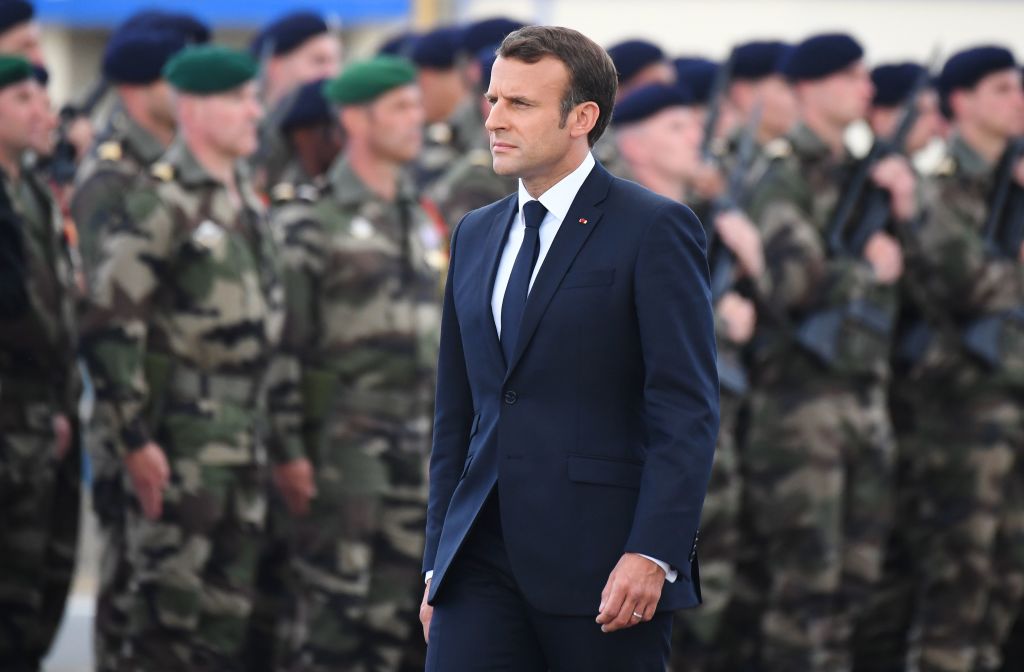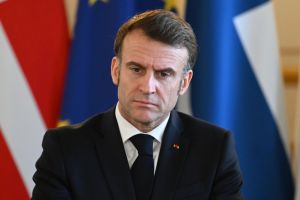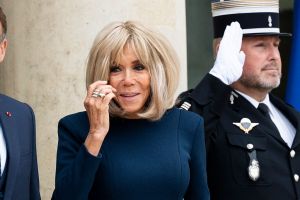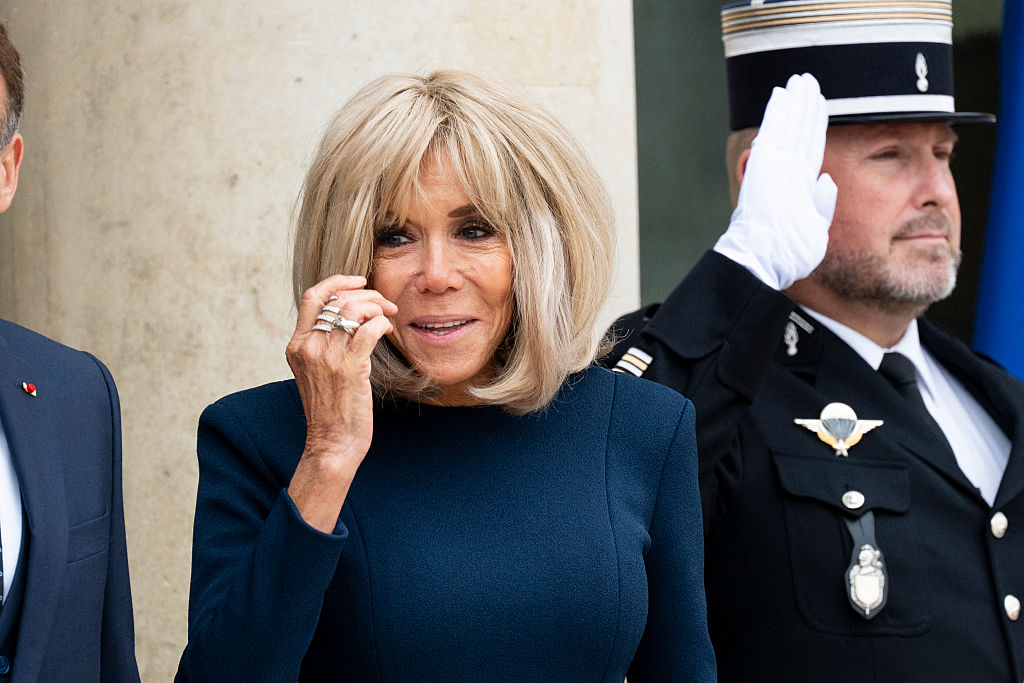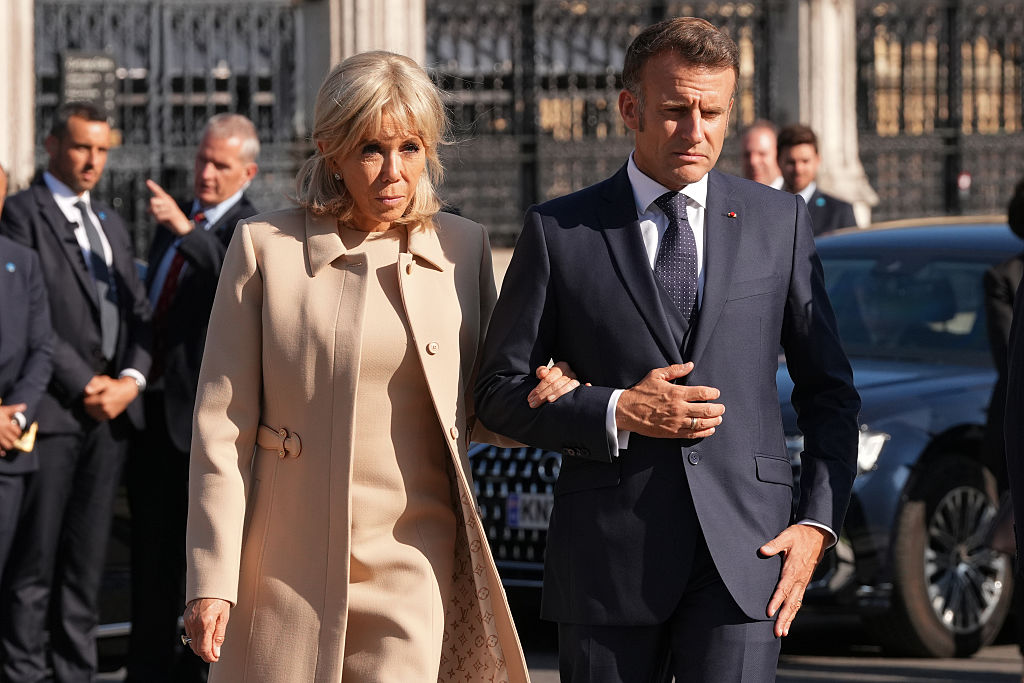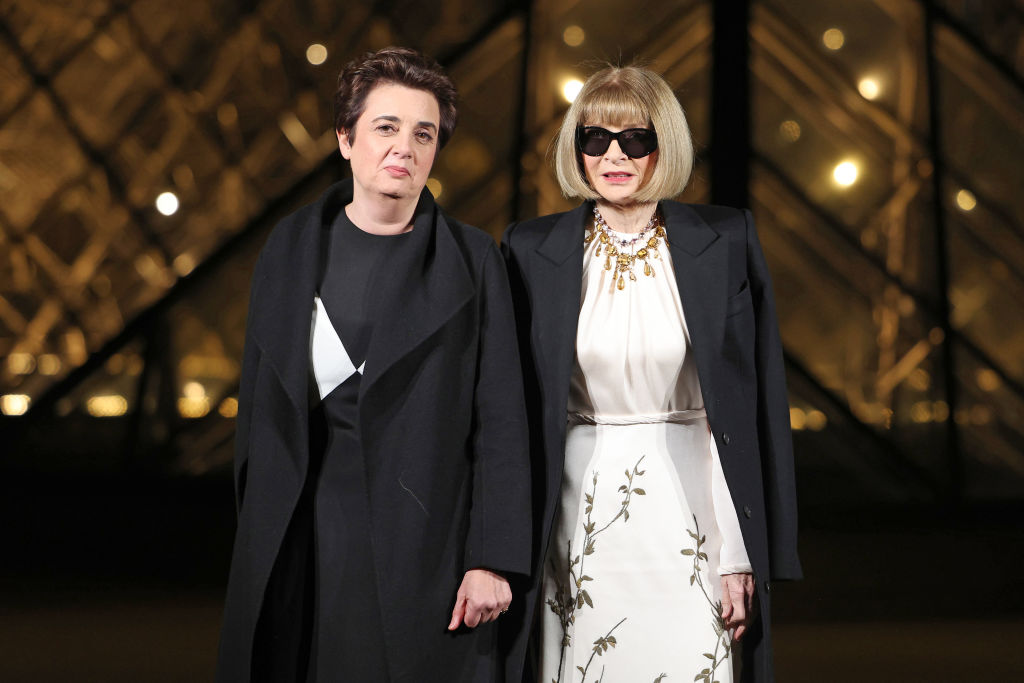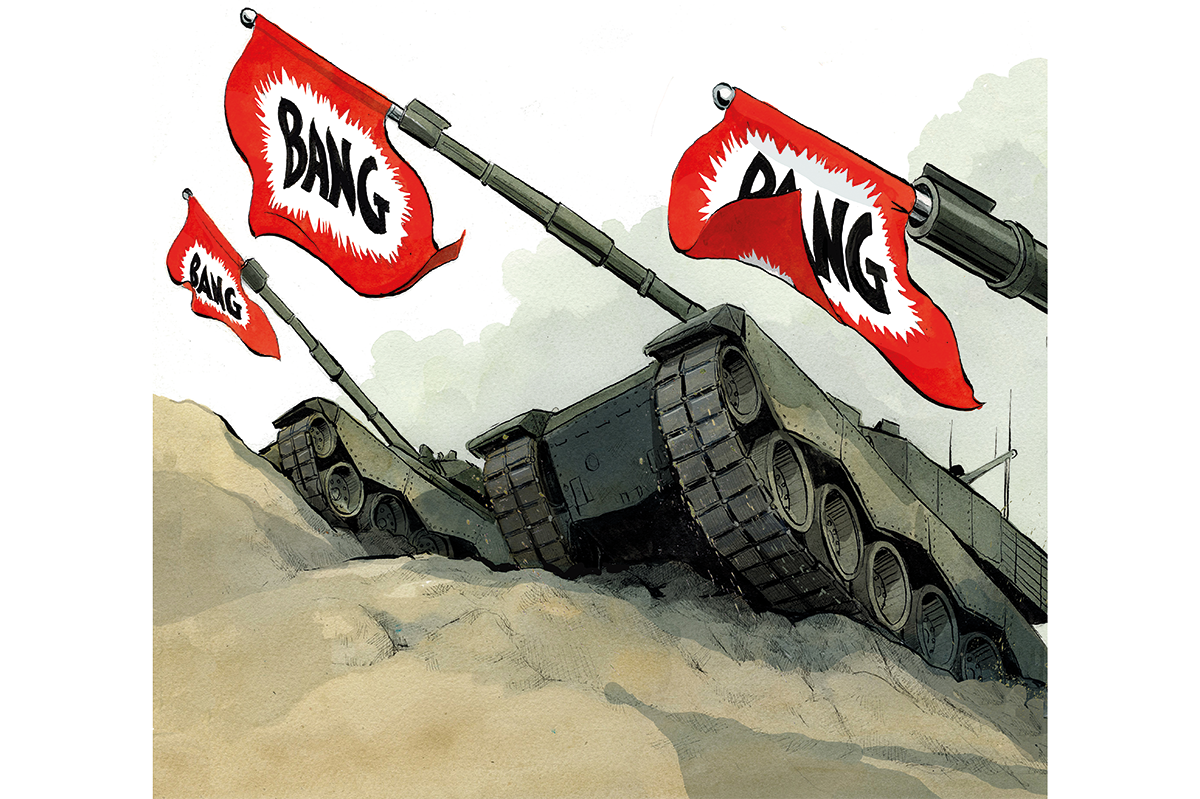No one wants to hear a lecture on ‘liberty and democracy’ from a finance guy turned technocrat. Especially not at a service commemorating the dead of the D-Day landings. In the last 30 years, finance guys and technocrats have enriched themselves at the voters’ expense, abused the notion of economic liberty, and wrecked social contracts across the West. Thank you for your service, as the voters never say.
The 75th anniversary of D-Day should be a time for remembering the true meaning of freedom and democracy — and for honoring the thousands of young men who died in foreign fields so that we might inherit those privileges. Instead, we got Emmanuel Macron’s side-eyed hectoring of Donald Trump at Thursday’s memorial service.
The United States, Macron told Trump, is ‘never greater than when it is fighting for the freedom of others’ and when it ‘shows its loyalty’ to the ‘universal values that the founding fathers defended, when nearly two-and-a-half centuries ago France came to support its independence’. To ‘be worthy of the promise of Normandy’, the ‘alliance of free peoples’ in the UN, NATO and the EU must continue to ‘surmount any adversity’.
Since when was it the United States’s job to fight everyone else’s wars, and commit to permanent confrontation with ‘any adversity’ that might present itself? The affluent states of Europe are more than capable of funding their collective defense, but they choose not to. NATO’s report for 2018, issued in March, found that only six European governments honored their commitment to spend at least 2 percent of GDP on defense. France was not among them. They were Britain, Estonia, Greece, Poland, Latvia and Lithuania. Of these six, only Britain and debt-strapped Greece had spent over 2 percent of GDP on defense in both 2017 and 2018.
Talleyrand said that the Bourbon monarchs ‘had learned nothing and forgotten nothing’. Macron has learned nothing and forgotten everything. In the spirit of amity, we shall ignore his conflation of the principles of the American Revolution, many of which derive from British traditions of jurisprudence and common law, with the abstract ‘universal values’ of the French Revolution of 1789. It is harder, though, for Americans to accept lectures on the virtue of NATO from a French president. France was a founding NATO member, but it was a French president, Charles de Gaulle, who in 1966 delivered the biggest assault on NATO’s credibility in its seven-decade history. In 1966, de Gaulle withdrew France from the pact, expelled all foreign forces from France, and developed an independent French nuclear deterrent.
French withdrawal from NATO left the US and its ‘alliance of free peoples’ to surmount the adversity of the Cold War without the support of a major European power and a permanent member of the UN Security Council. France did not fully rejoin NATO until 2009. Unlike Britain, France still withholds its nuclear deterrent from NATO.
The other units of Macron’s ‘alliance of free peoples’ are the European Union and the UN. A UN Security Council that included Russia and China was not founded as an alliance of free peoples, but to forestall nuclear war. The UN’s General Assembly rapidly became an alliance of dictators and kleptocrats in the decades of decolonization, and has remained an embarrassment to liberal democracy ever since.
The EU struggles to surmount even the adversities of its own making. There is no European army, so the EU isn’t able to join in with any ‘fighting for the freedom of others’. Instead, the EU faces massive internal resistance from the voters of its member states, the French included, as unaccountable, oligarchic and undemocratic. The EU’s lazy refusal to spend money on securing its borders, and its patronizing response to concern about the resulting mass immigration, are the chief drivers of European ‘populism’ — and populism is frequently little more than the assertion of ‘liberty and democracy’ against Brussels.
If you want an example of a government engaged in decoupling Macron’s sacred union of ‘liberty and democracy’, look no further than Macron’s. Despite the wave of anti-EU populism in Europe, Macron is pushing for further ‘convergence’ between the EU and its subject nations, and is collaborating with that other modern Napoleon, Mark Zuckerberg, on thought-policing the internet.
Macron, Reuters reported in May, believes that EU regulations on free speech online should ‘strike a balance between what he perceives as the United States’s laissez-faire stance and China’s iron grip on the internet’. Goodbye, egalité and liberté, and welcome to the fraternité of online snoopers and censors.
As for democracy, Macron won the French presidency because enough voters perceived him as the least objectionable candidate, and Marine Le Pen as, fairly or not, the candidate of Vichy and neofascist nostalgia. As a banker turned technocrat turned president, he embodies the corruption of liberal democracy into elite managerialism — a rot far more dangerous to the Western alliance than Russian meddling or Chinese snooping.
Dominic Green is Life & Arts Editor of Spectator USA.



